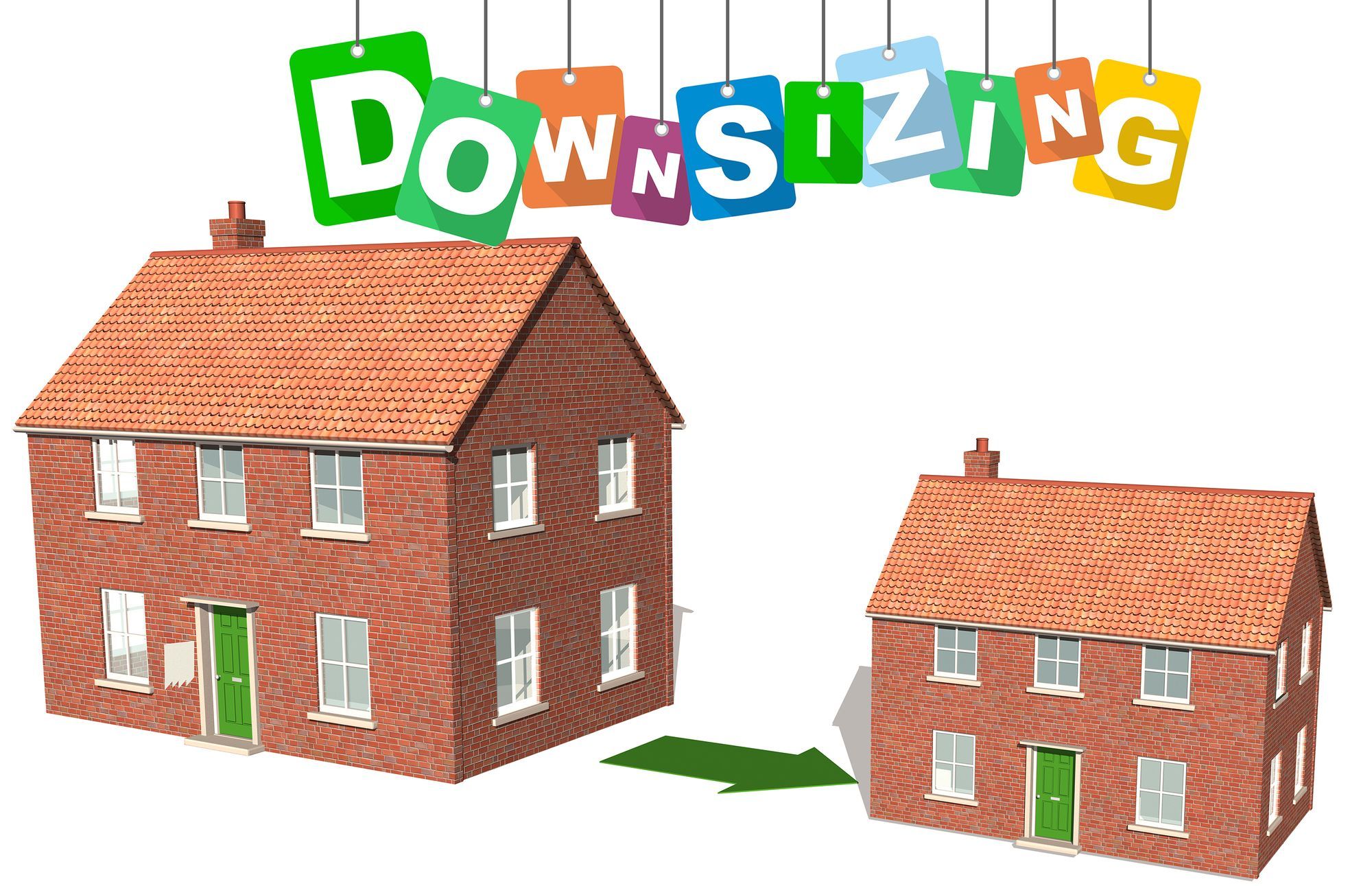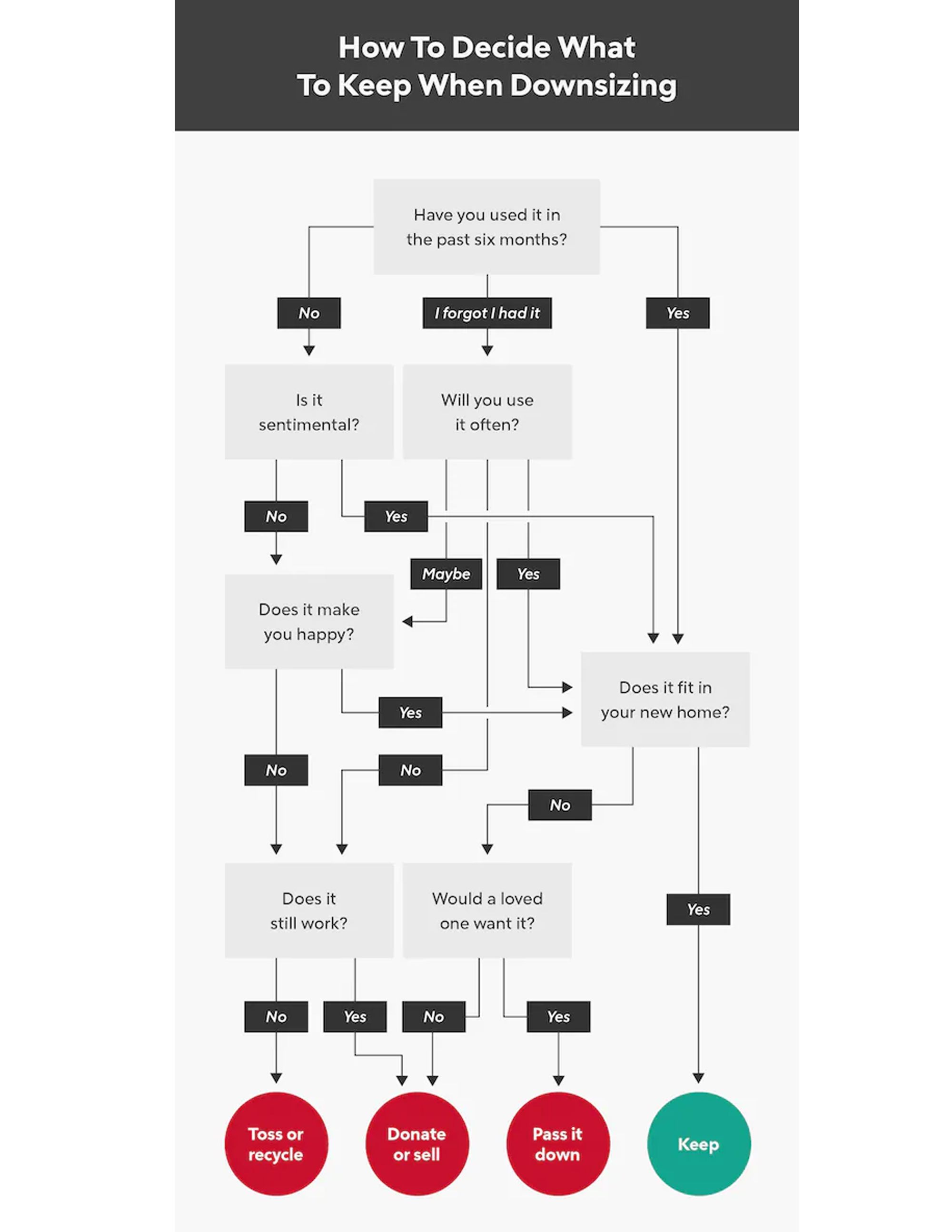How To Downsize Your Home: Tips On How To Declutter Before You Move

Downsizing your home can be the right move at any stage of life depending on your goals. People downsize for many reasons with the most common reasons being to save money and to get rid of unused space. Downsizing can be a challenge, because a smaller place means you don’t have room for all of your current possessions. However, moving into a smaller home can be an opportunity to refresh and start anew.
Here are four steps that will help making downsizing easier to navigate without sacrificing your most meaningful belongings.
1. Make A Plan And Start Early
A general rule of thumb is that you’ll want to start downsizing at least 3 months before you plan to move but honestly, the sooner the better. As you’re deciding what to keep and what to get rid of, do one room at a time. Moving is a big job, and you don’t need to tackle it all at once. Plan to do a little bit each day, and leave extra time so you aren’t rushed.
There are many different organizational methods that have gained in popularity over the years, like the KonMari method where you take on clutter by categories such as clothes, papers/books, sentimental items etc... You could also use the Four-Box method where you have a separate box for keep, donate, trash/recycle and sell.
Decided on what stays and what goes can be difficult. Ask yourself, will you use it? It’s easy to convince yourself you might still wear that 10-year-old shirt with the tags still on it someday. But if you haven’t used it in the past year, it’s likely you never will. Also, get rid of multiples. Do you have multiple coffee pots, or several sets of china? If you can only use one at a time, you don’t need to keep both.

2. Preserve Memories
Digitize photos to save space and easily share them with family. Photo albums take up a lot of room, and how often do you actually go through them? Pick up a digital frame and enjoy all of your photos in a rotating slideshow or create a slideshow screensaver for your TV or computer.
Take photos of items that bring up good memories, but you no longer have room for. You can look back on the memories without actually keeping the items. To make sure those treasured items are in good hands, pass them on to your children, grandchildren or close friends. They will love the gift, and you get to enjoy seeing the items being used.
Another strategy is to give keepsakes a new life. If you love to craft, items like old movie stubs, letters and photos are perfect for scrapbooking, letting you create a record of your experiences. Or make three-dimensional pieces of art using shadowboxes. Gathering up your memories in one place will make them easier than ever to enjoy. Turn your t-shirt collection into a quilt that you can actually use. Convert that old toy chest into usable seating and storage.
3. Measure Out Your New Space
In order to properly downsize, you have to know the size of the space you’re aiming to fit into. Ideally, you’ll know the square footage and shape of each room. This will help you figure out which large furniture pieces you should get rid of before the move. If you don’t have the exact measurements of your new place or don’t have a new place selected yet, focus on decluttering and getting rid of items you know you won’t need. Once you get more specifics, you can dig into those items that you were on the fence about.
Know that your current furniture might not fit in your space. Rather than squeezing large furniture into a smaller space, see what actually fits and take the opportunity to simplify and redesign your space.
4. Bring In Help If Needed
If you are feeling overwhelmed by the process of selling and buying a new home, bring in some help. Know what your strengths and weaknesses are – if you're a strong organizer, maybe you’ll just need help moving boxes on moving day. If you have a hard time getting and staying organized or letting go of items, a professional organizer could be well-worth your money. Put out feelers to your particularly organized friends and family, but try to not make it feel like an obligation. If they do agree to help out, make sure you thank them properly.
Downsizing can be an emotional process. You will discover items you haven’t seen in years, and you will have to decide what to do with them. Give yourself some time to reminisce, and then make a decision. Keep in mind your space limitations. Downsizing your home in the long run can save you time, money and space, but most importantly, it allows you to learn how to live a fuller life with less.
